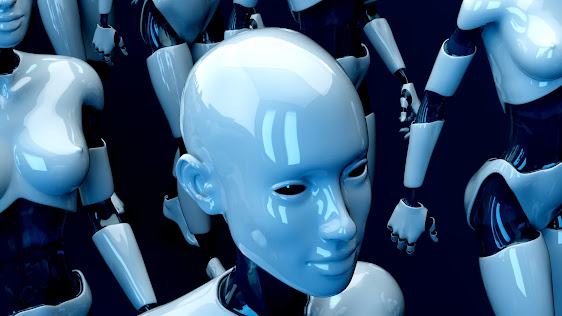The Evolution of Technologies: From Artificial Intelligence to ChatGPT
Artificial intelligence (AI) is a field of computer science that deals with the creation of intelligent machines that can think, learn, and perform tasks that typically require human intelligence. AI technology has been around for several decades, but it was not until the late 1990s and early 2000s that it began to make significant progress. With the advent of big data and powerful computing resources, AI algorithms have become more sophisticated, enabling machines to perform complex tasks such as image recognition, natural language processing, and decision-making.
One of the most significant breakthroughs in the development of AI was the creation of deep learning algorithms. Deep learning is a subset of machine learning that uses artificial neural networks to learn from large datasets. These algorithms have been instrumental in the development of AI systems that can recognize objects in images, understand natural language, and make predictions based on data.
Another critical development in the evolution of technologies has been the rise of natural language processing (NLP) technology. NLP is a subfield of AI that deals with the interaction between computers and human language. NLP technology has made it possible to create chatbots and virtual assistants that can understand and respond to natural language queries. These systems have become increasingly popular in recent years, with companies using them to provide customer service and support, among other things.
One of the most advanced AI systems today is ChatGPT, a language model developed by OpenAI. ChatGPT is based on the GPT-3.5 architecture, which uses deep learning algorithms to generate human-like responses to natural language queries. ChatGPT is capable of answering a wide range of questions, making it a useful tool for a variety of applications.The development of ChatGPT is significant because it represents a major step forward in the evolution of technologies. With its advanced language processing capabilities, ChatGPT can interact with users in a way that is almost indistinguishable from a human. This makes it a valuable tool for a range of applications, from customer service to language translation.
However, the development of advanced AI systems like ChatGPT has also raised concerns about the impact of AI on society. Some experts have warned that AI could lead to job displacement and even threaten the future of humanity. Others have argued that AI could be a force for good, helping to solve some of the world's most pressing problems.
te these concerns, it is clear that AI and other advanced technologies will continue to play an increasingly important role in our lives in the years ahead. As these technologies continue to evolve and improve, we can expect to see new applications and use cases emerge, transforming the way we live, work, and interact with each other.
In conclusion, the evolution of technologies, from artificial intelligence to ChatGPT, has been a remarkable journey that has transformed the way we interact with technology. AI technology has made it possible to create advanced systems like ChatGPT, which can interact with humans in a way that was previously unthinkable. As AI technology continues to evolve and improve, we can expect to see new and exciting applications emerge, bringing us closer to a future where machines and humans work together to create a better world.


